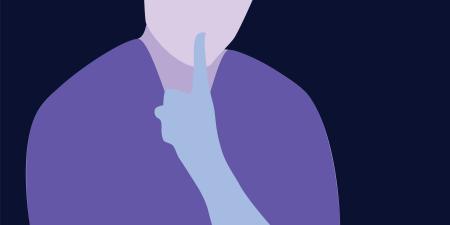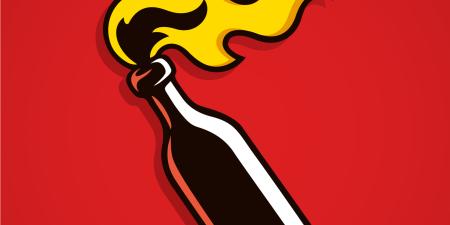Nearing the peak of Mt. Pelister in southern Macedonia, I stopped to look at the radiant yellow sun directly above head. I gave myself a moment to take in the beauty of the feathery clouds in the rich ocean of sky. While absorbing my surroundings, I looked down to see the village built at the base of the mountain. The tiny ceramic roofs glowed fiery-red under the hot July sun. Among those little ants was the house where a dynasty began.
Pando Gastevski was born in October of 1922. He was married by the age of 18 in the usual arranged manner. He soon created the initial fork in the new tree with his first son, Simo. Immediately after, war broke out. Pando fought bravely with the Yugoslav resistance until his capture by the Germans. He spent the next 2 years in a death camp in Bulgaria. Many of his comrades lost any glimmer of faith. To Pando, the light of freedom glowed like a strip of burning magnesium. He organized a revolt that would aid the escape of over 15 men. The Germans, not willing to accept defeat, tore through the mountains with behemoth tanks and trucks in search of the sickly, dried up men. A 6-month pursuit followed. The escapees made it to safety only by the goodness of the communities they passed through.
Pando continued his family life with the birth of his second son, Lazo. He also took the popular vote to become mayor of several villages. When Lazo was still an adolescent, Pando decided that a new canvas would be needed to paint the rest of his family's story. He set off to Australia and then to America in what would become a 10-year journey. In the end, Pando went back to Yugoslavia with enough money to bring his wife and second son to America.
Today, Pando is a grandfather twice over, with great-grandchildren from Simo's only son, Goce. With Pando's victories and success has come one of his greatest hardships, old age. He is now 79 years old, suffering from diabetes, high blood pressure, arthritis, congestive heart failure, and the difficulties associated with each of these illnesses. Pando had the desire to take one, perhaps last, trip back to his homeland with his grandson, Dragan. His fragile dreams suddenly shattered with the development of gangrene in his little toe. His somewhat uncontrolled diabetes had decreased blood flow to his feet, making the chances of a good immune response almost as easy as attaining world peace.
Pando was immediately admitted to the hospital. The surgeons and doctors concluded that the best treatment would be amputation of the leg "merely" at the upper thigh. Pando's son, Lazo, immediately called on his son, Dragan to come home to help. Upon receiving the news, I rushed home from college as fast as I could. As long-standing interpreter and pre-med student, I was sent by my family to get the whole story from the doctors. In all of my attempts, the only information I gathered was that it was safer to amputate the entire leg rather than just the foot. In the end, with the support of researched medical advice, I challenged the surgeons' decision to amputate the entire leg. The resulting surgery only removed 2 toes, leaving Pando independent enough to continue living his life. As a future doctor, I see myself wanting to treat patients to better their health. Immediately, I begin to consider my grandfather's case and the point at which we must stop treating patients in order to respect their dignity and happiness.
At first, the news of a broader amputation had sent Pando into shock. This brave military commander, mayor, pioneer, and family man had been brought up in a culture that stressed his role as the leader of the household, the root of our growth in this new country. I was the first one to tell him of the doctors' decision. He told me frankly that he would rather put a bullet in his head than to live the rest of his life as a cripple, always begging for help to go to the bathroom. I was, of course, used to his brute chivalry. Before his hospitalization, my mother and I had shared the responsibility of driving him to doctors. In the beginning, Pando would allow us to go in with him and listen to the doctors' prognoses. Upon returning home, we would tell him that he shouldn't have that chocolate because of the doctor's orders. Pando would tell us that we misunderstood the doctor, because the doctor had apparently told him to have one piece of chocolate per day. This trend of contradiction persisted until Pando became angry and refused to let my mother enter the examining room with him. We continued to note him satisfying his sweet tooth and his resulting high blood sugar. Any attempts to confront him, however, have always ended with him swearing that he was doing what the doctor told him.
Is this a case of simple anger, or is it a respectable leader of a clan facing humiliation as a result of the difficulties at this point in his life? I might also think that his occasional forgetfulness could be to blame. My family and I have tried many times to persuade him to go on insulin or do more exercise. Every time, he has put up a brick wall of resistance. Is it time for us to dig trenches and reenter combat? As a medically oriented student, I believe it is my duty to help those around me, especially my family. But in considering this issue, I begin to question whether it is even worth fighting with him. If my family pulled out all the artillery and fired upon him, he would forever resent us for our insolence and demoralizing acts against the head of the dynasty. In all of this consideration, I am not able to draw up a clear ending or decision. My attempt to weigh strict medical care against personal freedom keeps stabilizing at a certain point: Does Pando achieve a higher level of overall happiness if we let him do what he wants? At my young age, I am not yet sure what the meaning of life is. I do, however, know that a general aim of man is to have the highest levels of happiness and satisfaction throughout life. My grandfather has gone into Hades and has come back to level the land for his family with his own fists. As a leader, he has created a foundation for growth in our villages in Macedonia, and most of all, for his own dynasty. After all that he has been through, I attach particular significance to the fact that his first mention ever of ending his life comes in answer to a doctor's diagnosis. I leave this considerable narrative pondering the same thought with which I entered: What should doctors and families do when one who has lived a hero's life, or anyone for that matter, refuses strict medical care?



